December 21, 2007, - 3:40 pm
Weekend/Holiday Box Office: Great Choices “National Treasure,” “Kite Runner,” “Water Horse,” Plus Duds “Great Race Baiters,” “Steven Tyler’s War,” “P.S. ‘300’ Hunk is Whipped”
By Debbie Schlussel
There’s a good, diverse selection of both great movies and duds at the box office, this weekend AND beginning on Christmas Day. Since some of the movies debut today, and some on Christmas Day, I’ve noted that with respective categories. Two movies, “Charlie Wilson’s War” and “The Great Debaters” would more aptly be called, respectively, “Steven Tyler’s War” and “The Great Race Baiters.” For the reasons, my reviews:
OPENING TODAY
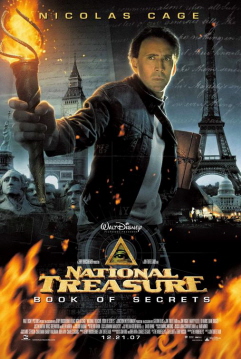
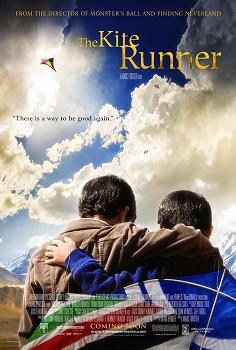
* “National Treasure: Book of Secrets“: I highly recommend this movie. If you love American history, but even if you don’t, you will love this film. It’s like “Raiders of the Lost Ark” with American history and a less suave and debonaire “Indiana Jones” in the form of Nicholas Cage. Even if you don’t like anti-hero Cage, you will like this movie. It’s got action, adventure, American history, excitement, comedy, and fun. Plus, it co-stars the always hot and debonaire Bruce Greenwood as the President of the United States. This is the kind of movie people go to the movies to see. Thanks, Disney.
Although this is a sequel to 2004’s “National Treasure,” you needn’t have seen the first one. I hadn’t until after I screened this second one. And this sequel is better than the excellent and entertaining first installment. The story: Cage returns as Ben Gates, treasure hunter, and descendant of Thomas Gates, who helped defeat the Confederates and their post-war efforts, including the conspirators with John Wilkes Booth in the assassination of Lincoln. Or did he? A descendant of one of the Confederate conspirators produces a diary page that says otherwise. But a cipher on the other side of the page reveals a sequence of hints Gates uses to try to clear his family’s name.
It takes him to the Oval Office, kidnapping the President, Mount Rushmore, and even Buckingham Palace to the Queen’s desk. A lot of history is woven in, and it’s a great way to teach your kids . . . and yourself.
Take your whole family to see this.
* “The Kite Runner“: One of the year’s best movies, this is also the most powerful. Based on the Khalid Hosseini novel of the same name, this is about how a secular, areligious Muslim father and his son witness the takeover and destruction of their country, first by the Communist Soviets, then by the Islamist Taliban.
It’s also about righting a wrong of Islamic racism, rape, and infidelity in a further generation. It’s a movie of redemption, forgiveness, and hope, facilitated by American opportunity. But it’s not just a drama or a political statement, it is an engrossing story that also has action scenes and an escape which is probably the only unbelievable part of the film.
Amir and Hassan are two cute, young boys and close friends, but there is a complication to this dynamic. Amir is the son of a wealthy, westernized, areligious Afghani. Hassan is the son of their servant and, like his servant father, is a Hazara–a denigrated, discriminated-against Afghan minority that is less Western-looking and more ethnic in appearance. They are referred to as “flat-nosed.” We see the bigotry against Hazaras throughout Afghan society. And as a Hazara servant, he pledges his everlasting servitude and loyalty to Amir. Amir, interested in reading and writing, appears smart, but his illiterate servant boy, Hassan is even smarter and has his own ambitions he knows will never be realized due to status and class.
Although Amir attends a Muslim school, his father makes clear to him that he believes what his son is learning there is garbage. His father drinks alcohol, which the Islamist teachers at school say will make him go to hell. When he tells his father that and other things, his father dismisses their religiosity, even though he is among their chief benefactors.
Amir and Hassan are engaged in the serious kite-flying pursuit among young and teen boys in Afghanistan. Amir flies his kite. Hassan serves as his “kite runner,” providing slack in the string in trying to tear down rival kites and running down the kites they’ve “defeated” and therefore won. But, one day, in running down a kite, Hassan–the servant boy–finds himself surrounded by enemy boys from the ethnic majority. They rape him. Amir tracks him down and sees what is happening, but does nothing. Soon, he tells his father that Hassan stole his watch and frames him. Hassan and his servant father quit and leave Amir and his father.
But there is no time for any guilt or sadness. Soon, the Soviets roll into Afghanistan, and Amir and his father must flee. The father sells his Bullitt-style Mustang in exchange for fake documents and smuggled passage out of Afghanistan. As an intellectual and wealthy, outspoken secularist, he knows he cannot survive under the Soviets. They are in the back of a truck with other Muslims, when a Soviet soldier denies them free passage unless he gets his way with an Afghan woman. And there are other powerful scenes like this.
Soon, in the United States, Amir and his father are no longer part of the wealthy ruling class. His father works as a gas station clerk and later in a local outdoor market with other Afghanis, selling precious belongings. And Amir grows up–a community college graduate struggling to become a writer. They live in a small, dumpy apartment. There, at the market, Amir meets Soraya–an Afghan general’s daughter. Opportunities present themselves, which bring Amir back to Afghanistan to see old family friends and right a horrible wrong. We also see what’s become of Afghanistan, that the Islamists are 100 times worse than even the Soviets were.
Though a little slow at first, this movie is moving and extremely patriotic and pro-American. It shows that America truly is the land of opportunity and making dreams come true. That America is a land of justice and righting wrongs. I cried during parts of this movie because a father is dying of cancer, and it reminded me of my late father. But, while you may not cry, you will be extremely moved. The end is extremely uplifting and pro-American.
If I had one reservation, it is that local studio representatives invited Islamist groups, like the ADC (American Arab Anti-Discrimination Committee) to see this very anti-Islamist movie. The Muslims who are the heroes in this movie are among the scant few moderates. They are apostate, secular Muslims who despair the extremism. They are nothing like the many extremist, hijab-encrusted Muslims we saw populating the theater at a special showing. The movie shows what the Taliban–and all Islamists–do when they take over a country. But the ADC supports Islamic terrorist groups allied with the Taliban and serves as an American-based apologist for Taliban-like governments.
This movie is loud and clear against the barbarianism over there for which this group is a key advocate over here.
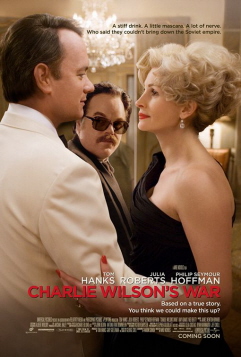
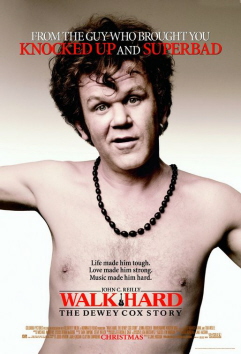
* “Charlie Wilson’s War“: This movie would more aptly be called “Steven Tyler’s War.” That’s because, right after the 9/11 attacks, the lead singer of the rock group Aerosmith made the same statement as this movie–that we’re responsible for the 9/11 attacks and Bin Laden being at home with the Taliban because we didn’t fund roads or schools for the Afghans, after we spent millions for them to defeat the Soviets. But that’s a lie.
As I wrote in a whole column debunking Tyler’s–and now this movie’s–fallacious claim, we actually spent billions on the Afghans over the years since we funded their defeat of the Communists. In fact, as I wrote then, in Fiscal Year 2001 alone, in the Agriculture Bill alone, we gave Afghanistan $118 million for various infrastructure and development (through the Dept. of Agriculture and USAID). We gave plenty more to the Afghans in other bills in 2001, before the attacks, and in the preceding years.
But the Afghan Muslims didn’t care. They took our money, and they laughed at us. They made their country a home base for attacks on their savior, America, anyway. They welcomed Bin Laden and allowed Taliban rule because they simply preferred their Islamist beliefs over respecting and showing appreciation for the billions in American infidel money they received and largely squandered. But you won’t see that in this movie, because it doesn’t jibe with its far-left message to the contrary, encapsulated in the quote on the screen at the end:
“And then we f-cked up the end game.” – Charlie Wilson
But we did not “F” up the end-game at all. If we made any mistakes in Afghanistan, it was that we 1) brought the Arabs in as Mujahideen and promoted the fight against the Soviets as a Muslim holy war against infidels, uniting the Muslim world and especially uniting these remote Afghans with Arab Muslim extremists–that was the doing of pan-Islamist conservatives sleazebags like Grover Norquist, and we did not need them, as it was our weapons (and those of allies) in the hands of Afghans that made the victory happen; and 2) failed to adequately protect and sufficiently promote the U.S.-allied, moderate Muslim forces and key figures, such as the Northern Alliance and its leader, Ahmed Shah Massoud (who was murdered by Al-Qaeda, just after 9/11, because we failed to protect him). But you won’t see those arguments in this movie either.
Should we re-examine what happen in Afghanistan? Yes, we should. But this movie is not the way, although it does show the prescient reservations of a leading Congressman and an Israeli arms dealer, about dealing with and enabling extremist Muslim fighters. “The Kite Runner” is a far better look into what was happening in Afghanistan and what happened since.
And there was no mistake in helping the Afghan people overthrow the brutal Soviets, contrary to what this film thinks. And it wasn’t solely the accomplishment of a playboy, drug-using, womanizing Congressman from Texas and his sleazy frequent bed-partner, campaign donor, and beauty queen muse, contrary to this film’s message. We did not create Bin Laden, Al-Qaeda, or the Taliban. We did not create Islam or its many dominant extremist strains that want to wipe us off the face of the map. These things were already here. They were not the logical conclusion and result of a playboy Congressman and his equally sleazy Texas debutante friend, contrary to “Charlie Wilson’s War”‘s message–a message that was tempered after the subjects, Congressman Charles Wilson and muse Joanne Herring, threatened to sue over the original script.
This version of events is brought to us by George Crile, a leftist former “60 Minutes” producer who wrote a book of the same name, and left-wing Aaron Sorkin (who created pan-Clintonian “The West Wing”). It’s directed by Diane Sawyer’s husband, Mike Nichols. And it’s something of a wild exaggeration of events. It’s also a comedy, and while it is, indeed, very funny, that humor comes at expense of the real story.
Tom Hanks plays Charlie Wilson, the Texas Congressman who did drugs in the Caribbean, hung out in hot tubs in Vegas with porn stars, Playboy centerfolds, and strippers. One of his biggest campaign donors–who is also one of the richest women in Texas, a former beauty queen, and one of his lovers–Joanne Herring (Julia Roberts)
pushes Hanks to pursue funding for the Mujahideen to defeat the Soviets in their invasion of Afghanistan. After initial reluctance, but very litle cajoling, Wilson agrees.
If the moviegoer has any doubt that our entry into Afghanistan was a result of a buffoonish, sleazebag Congressman, this movie’s producers make sure that hole is sealed. We’re hit over the head with the sleaze in every way, including a soundtrack that includes Kool & The Gang’s “Ladies Night” and Donna Summer’s prostitute anthem, “Bad Girls.”
Since he’s collected many favors–including voting for pork pet projects and helping John Murtha in the Ethics Committee investigation of Murtha’s ABSCAM scandal (which gets some nice play in this movie)–many Congressmen owe Charlie Wilson. He convinces them, including the powerful Clarence “Doc” Long, played by Ned Beatty, who rightfully objects to funding “these Muslims who want to kill all of us Christians and Jews.” At first, it is a million, then Hanks gets the amounts of money to grow geometrically, until it is billions we are spending to defeat the Soviets. And then we do.
That’s part of the story, but not the whole story. In fact, the Reagan Administration played a big role in this fight. But in this movie, Reagan and his Presidency really don’t exist at all. There’s nothing about all of the conservative groups who helped rally the country and Congress to “Support the Afghan Freedom Fighters.” (I still have the bumper stickers saying that.)
In the movie, Charlie Wilson’s partner in all this is not just the demanding Herring. There is a gutsy CIA agent involved, Gust Avrakotos. Played magnificently by Philip Seymour Hoffman, he is at once funny, annoying, gutsy, and cool. He is the most likeable and entertaining character of the movie. It’s worth seeing just for him, if you can wade through the rest of the two hours of fertilizer. The thing is, even his part is exaggerated. The CIA originally opposed our supporting the Mujahideen fight against the Soviets.
The scenes in which Avrakotos and other CIA agents mock and insult our Northern Alliance ally, Ahmed Shah Massoud, and his fellow Tajiks as gay and beneath us, are telling. Massoud was the best thing we had going for us there, but CIA “intelligence” missed his assassination by Bin Laden pre-9/11.
The movie shows us Wilson traveling at Avrakotos’ behest to Israel to talk to an Israeli arms dealer from the Mossad. “Zvi”‘s Israeli accent is terrible and his Hebrew is completely wrong. You’d think a movie, the budget of which was well over $100 mill, could do better. (Ditto for Julia Roberts’ horrid Texas accent–and she’s originally from the South!) They convince him to meet with and deal with an Egyptian official–Wilson enlists one of his many booty-call entourage members, a Texas-born girlfriend who is a belly-dancer to seductively dance with a sword and close the deal.
We see Wilson in Pakistan, meeting with amputee victims of Soviet bombs from the Afghan invasion. And Wilson’s conversations with then Paki Prez Zia Ul-Haq, coordinating airspace and strategy and exchanging niceties. When they first meet, Ul-Haq tells Wilson that he’s “a man of many character flaws.” Later, Wilson jokes,
You know you’ve pretty much hit rock bottom when you’ve been told you have character flaws by a man who hung his predecessor in a military coup.
Ul-Haq’s biggest objection in the whole scheme to arm the Afghans–the JOOOOS:
If I see one f-cking Star of David on a crate [of weapons]. . . .
The movie is chock full of exaggerations and the extremely annoying constant references to the Jews controlling American politics. Not to mention, the annoying portrayals of Christians and Christianity as the true extremism, not Islam:
* Charlie Wilson’s Washington Congressional office consists of all beautiful women with large breasts and shirts unbuttoned to their navels to display the cleavage. Reality check: I worked on Capitol Hill in the late ’80s, and I was in Charlie Wilson’s office. Yes, like many Congressman, many of the staff were beautiful (and, yes, he dated many such women). But the cleavage-bearing stuff is fake. You’d have more likely seen that in Ted Kennedy’s or Chris Dodd’s office. Yes, Wilson was a playboy, who dated and married beauty queens. But even he wasn’t this bad.
* Wilson initially tells Herring he can’t help her with the Afghans because of “The Jews in my district.” When she asks him how many Jews are in his district, he answers that there are almost none (he provides a single-digit number), but:
You’re re-elected by your contributors. And my contributors are in New York and Hollywood, Florida. I’m Israel’s guy in Congress.
* When Wilson’s girlfriend belly dances for the Egyptian official, Wison tells him her father didn’t allow dancing because of his extremist religion. When the Egyptian asks which religion, Wilson answers, “Baptist.”
* Sleazy right-winger (is there any other kind of right-winger in Hollywood’s eyes?) Herring (Roberts) is constantly bandying about her Christianity and religiosity and how she was saved by Jesus. But she’s a bizarre sleazebag who sleeps around with Wilson. And, of course, she has a fawning Black butler. This is what our backing of the Afghan fight against the Soviets was all about–at least, that’s the message of this movie.
But there are things, other than Hoffman’s Agent Avrakotos that are worth seeing, such as a scene with Soviet MIG pilots complaining to each other about their girlfriends, then getting blown into oblivion by stinger missiles we funnelled to the Afghans. As the Afghans shout, “Allahu Akbar,” it reminds us of who we enabled.
Best line in this movie:
You’re not stupid. You’re just in Congress.
At the end of the movie, Wilson can’t convince Congressmen who gave billions to Afghanistan to fight the Soviets, to give $1 million to fund an Afghan school for kids. Wilson lectures them:
This is what we always do. We go in there with our f-cking ideals and then we leave. We always leave.
Uh, no we don’t. And as I wrote above, we invested billions in Afghanistan, up to the moment we were attacked by their prominent visitor on 9/11. And even after that, we continued to give them gazillions. On the contrary, we don’t leave when we should. And we fail to see that they won’t adopt our ideals, no matter how much we spend.
Now, that’s a movie that needs to be made: “Charlie Wilson & His Congressional Buddies Didn’t Know How To Stop Funding Our Enemies, After His War Ended and His Allies Remained Our Unappreciative Enemies.”
* “Walk Hard: The Dewey Cox Story“: Of all the crude and coarse Judd Apatow movies–most of them extremely bad and disgusting–this one is the worst. A parody of all those country music singer biopics, such as the Johnny Cash “Walk the Line” flick. It follows Dewey Cox (John C. Reilly, who should stick to being a co-star in stupid comedies, not the star of them), a stupid country hick, who cut his brother in half with a machete when they were little. Do you find that funny? I do not.
Later, he accidentally becomes a hit country singer and recording star and we follow his life from age 14 until death at age 70-something, through many kids and at least two wives.
While it has its (scant few) funny moments–such as a scene mocking The Beatles at an ashram (Jack Black is Paul McCartney) and Dewey Cox ripping off Bob Dylan’s persona and style–this movie is mostly disgusting. Most of the jokes are crude and about sex and drug use, and it features plenty of songs filled with juvenile double entendres. The movie features not just one scene of a giant, naked penis in your face–but THREE of them! Haha, funny. Grabbing sinks out of a wall–maybe funny once, but not after 20 times.
Then, there’s the running “joke”–playing on the anti-Semitic claim–that Jews run the music industry. Throughout the movie, we see three old Chassidic Jews in traditional Chassidic garb, beards, and sidecurls ushering along Dewey Cox’s career and speaking Yiddish with him during his prison stint. While that may be funny to the gentile world, the Jewish Apatow (and also Jewish director, Jake Kasdan) help promote a long-standing stereotype and think they can get away with it because self-hatred is in. In fact, most of the big music companies are owned by the Japanes, the Germans, and the Mafia. And Chassidic Jews–with traditional family values–would never get involved in the tripe that the record biz puts out these days. That’s the domain of left-wing a-religious Jews, who have no values.
This 2-hour celluloid stupidity is a national taste test–if you like this movie, you have none (taste). I’m no prude, but I mostly sat there stone-faced as the rest of the base audience laughed ceaselessly at jokes about his surname (“Cox”), “blowing” people, penis size, and “hard”ness. And the gratuitous penis, breast, and orgy shots. Simply hilarious . . . if you’re in the third grade and mentally deficient. The scenes of bloody bodies cut in half–sorry, but that’s not comedy. It’s just gross. Just like this waste-of-time movie, which co-stars Jenna Fischer (Pam on NBC’s “The Office”).
I’m sure this movie will be a huge hit, proving yet again that there’s no accounting for good taste in America.
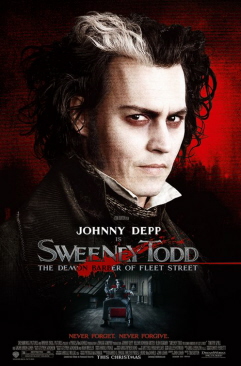
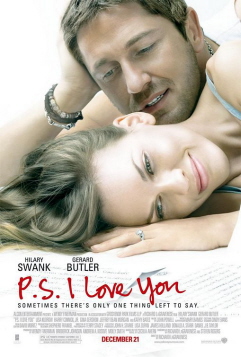
* “Sweeney Todd: The Demon Barber of Fleet Street“: This is based on the Broadway musical of the same name about a wronged barber who becomes a serial killer. In a dark, morbid tale in which the weird Johnny Depp and bizarre Helena Bonham Carter are best cast (as is “Borat“‘s Sacha Baron Cohen as an “Italian” barber), Depp is Benjamin Barker.
Barker was a naive, young barber on London’s fleet street. He was married to a beautiful blonde, and they had a beautiful blonde baby daughter, Joanna. But a prominent Fleet Street judge, Judge Turpin, desired Barker’s wife, so he framed Barker for a crime he did not commit. Barker was sent to prison, and Turpin snatched Barker’s wife and daughter. Barker’s wife, we’re told committed suicide by poisoning herself, and his daughter became Judge Turpin’s “ward,” whom he’s imprisoned in his house.
When the movie begins, we see the former Barker, who has taken the name Sweeney Todd, returning by ship to London. He is mad, angry, and wants revenge. He teams up with Mrs. Lovett, a failed restaurant owner who makes awful meat pies no-one would ever eat. Together they scheme to get Judge Turpin, kill him, and redeem daughter Joanna from his clutches. Todd opens a barber shop above Mrs. Lovett’s restaurant, where he serial kills most of his clients. Then, they are sent below to make Mrs. Lovett’s “new and improved” “meat” pies, which are now all the rage of Fleet Street.
Will serial murderer Todd and human meat pie baker Lovett get caught? Will Todd get the chance to off Judge Turpin? Will he ever see his daughter again?
About two-thirds of this movie is singing. Still, it’s not a chick’s musical. It’s a “guy’s musical” if there ever was such a thing. My mother, who saw it with me, calls it “Gory but good,” which I think sums it up well.
This movie is bloody, violent, and not for the faint of heart. There is a lot of throat-slashing, blood-spurting, killing, and a few brief scenes of human limbs, which are baked into “meat pies.” Gross, but part of the plot. So, beware.
* “P.S. I Love You“: P.S. You’ll Hate This. Gerard Butler–the hot, masculine warrior star of “300“–becomes a whipped girlie man, in married life and even after death. That’s this movie in a nutshell. Sweet, handsome, dedicated Butler is an Irish limo driver married to an insufferable, shrewish whiner played by the equine Hillary Swank. From the beginning of this movie–which begins with an argument between them–you can’t understand why this gorgeous and devoted man would end up with this annoying, bitter woman. And it goes downhill from there. Swank’s husband dies from a brain tumor, but after death, he sends her a series of letters, packages, instructions, and even travel plans he wrote and arranged before his death. Again, it makes no sense that this more than decent guy would end up with this witch, even less so once he’s dead. It gives you no reason to care about her and what happens after he’s gone.
A total chick flick, but not even an engrossing one in any way. Even Lisa Kudrow–trying t0o hard as a comedic, madcap, shallow friend–doesn’t rescue this one. Skipworthy.
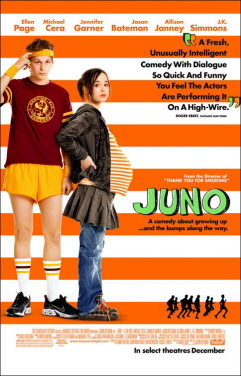
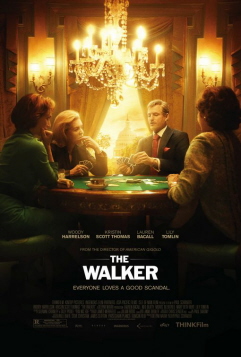
* “Juno“: Yet another teen movie, making teen pregnancy seem like not such a big deal. And it makes teenage sex even less of a big deal–it’s more like something you do after you brush your teeth at night, like flossing.
In a movie that tries way too hard to be offbeat and quirky, Juno is a teen girl who has casual sex with a male friend from high school. If you find her as annoying as I did, maybe that’s because she looks and sounds exactly like a teen-age version of unfunny and annoying liberal “comedienne” Janeane Garofalo.
Upon learning of her pregnancy, Juno’s barely-there parents get upset for like the length of one hiccup. It’s really no big deal. At first, Juno goes to an abortion clinic. That’s the only redeeming scene in this movie. A pro-life classmate of hers is outside the clinic holding up a protest sign and tells Juno that her baby is alive and has fingernails. That gets to Juno, as does the gnarly airhead valley girl receptionist inside the clinic. She decides to have the baby.
Juno then finds a couple who want to adopt . . . from a neighborhood shopping flier?! They are a wealthy couple–Jason Bateman and the overly emotional, gushing, and annoying Jennifer Garner–who can’t have kids. After lots of offbeat music sessions and hanging out with Bateman, Juno learns the selfish and unhappy Bateman will leave his wife. What does she do? Does she have the kid anyway and give it to the single mom?
Who care? I didn’t care enough about anyone in this movie to want to know what happens next. Neither will you. Completely unbelievable is that a teen in high school would know so many references to offbeat musicians from the ’70s and ’80s, with which even those who lived those decades aren’t familiar.
Skip this one. And definitely don’t send your kids to see it.
* “The Walker“: A gay son of a late former Congressman (Woody Harrelson) escorts rich, politically connected wives of the rich and politicians around Washington. When one woman he’s escorted to her extra-marital boyfriend’s house discovers the man was murdered, he chooses to cover up for the woman and bring suspicion upon himself. The plot is too stupid for words. And nonsensical. In the end, everything works out, but I’m not sure how . . . or why. The movie pays too much attention to set design and wardrobe and zero attention on a logical, interesting script. Slow, boring, and no point to this drivel. Among the old biddies he escorts: Lily Tomlin, Lauren Bacall, and the like. Yawn.
OPENING CHRISTMAS DAY
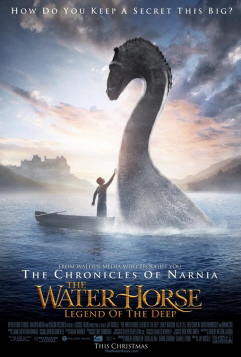
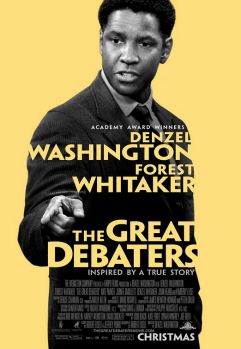
* “The Water Horse: Legend of the Deep“: This is one of the great family movies of the year. Not only can you take your kids to see it, but your whole family will enjoy it.
At last, we know how the Loch Ness Monster came about in Scotland. Two American tourists meet an interesting storyteller at a Scottish pub. He tells them a story they’ll never forget. The story, about a young boy who finds a magical egg, is set in World War II Scotland.
The boy knows his father, a Navy officer, is probably lost at sea in the war, but keeps hoping for his return. In the meantime, he finds the egg on the beach of the Loch near his home. Soon, a small creature is born from it, a friendly, magical water horse that keeps growing bigger. But it is in the middle of a war, after all, and the boy’s house–a mansion, actually–is being billeted by British soldiers. They mistake the water horse for something more.
A great adventure, with excitement, suspense, and charm. And the computer-generated water horse is pretty good on CGI scales.
* “The Great Debaters“: A better title might be, “The Great Race Baiters.” Although this Oprah-produced movie–about a Black college debate team, which defies the odds to beat several White colleges in debate, including national champions, Harvard, in 1935–starts out noble and well, it declines into a two-hour focus on White racism against Blacks. The debate coach, socialist labor organizer Melvin Tolson, is played by Denzel Washington.
While it is true that in that era, there was plenty of racism, this movie lords it over you. There isn’t a single good White person in the whole movie. They are all racist and hickish . . . or racist and elitist. And all of the Black characters in this movie are pure and good. They are justified when they refer to Whites as “crackers.” It’s hard to enjoy a movie that engages in such universal condemnation of one race in order to promote the achievements of another because it had a good debate team.
And then there is the true story. This movie is being billed as a true story, but it is BASED on a true story. That’s not the same thing. Throughout the movie, we’re treated to scenes such as these: Whites setting Blacks up in an “accidental” pig killing, then having to reimburse the racist White pig farmers; Whites lynching Blacks; a White sheriff brutally beating and torturing Blacks and arresting them illegally; etc. The “Great Debaters” witness and endure all of this.
Did all of that happen to the “Great Debaters” of Wiley College? A good deal of it is trumped up for dramatic effect. And it makes you wonder what the intent is, therefore. After all, it’s hard to miss that this race-baiting movie, with a not-so-subliminal “Get Whitey” message, is produced by Oprah. You know–the same Oprah who proudly engages in racism against Whites on a daily basis. Who can forget her famous speech at Howard University, echoing a previous conversation with best friend Gayle King on her XM radio show, that Oprah loves lording it over Whites that they are now her servants?
It would make a great contrast to the pronouncements in this movie–during various debates–that all races are equal and that one shouldn’t be subservient to the other. Hard to believe Oprah believes anything like that when it comes to White people.
The acting is good, and the costumes and set design are excellent. The message, not so much.
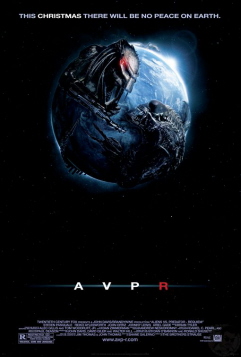
* “Alien v. Predator: Requiem“: This one wasn’t screened for critics, usually a sign that it’s not of the highest quality. But that’s par for the course for the Alien, Predator, and Alien v. Predator flicks. I liken it to HAMAS v. Fatah onscreen. If you like watching that, you’ll probably like watching this.
The website for this sequel to “Alien v. Predator (AVP)” has cool features like “Create Your Own Predalien,” play online games, and send holiday cards.
Tags: 60 Minutes, Aaron Sorkin, ADC, Advocate, Aerosmith, Afghanistan, Ahmed Shah Massoud, airhead valley girl receptionist, al-Qaeda, America, American-Arab Anti-Discrimination Committee, Amir, Ben Gates, Benjamin Barker, bin Laden, Bob Dylan, brain tumor, Bruce Greenwood, Buckingham Palace, Butler, cancer, Caribbean, Central Intelligence Agency, CGI, Charles Wilson, Charlie Wilson, Charlie Wilson But, Charlie Wilson's War, Chris Dodd, Christmas day, Clarence "Doc" Long, Congress, congressman, Create Your Own Predalien, debate coach, Debbie Schlussel There, Denzel Washington, Dewey Cox, Diane Sawyer, director, Donna Summer, Egypt, Ethics Committee, even travel, failed restaurant owner, Fatah, Fleet Street, Florida, gas station clerk, Gayle King, George Crile, Gerard Butler, Get Whitey, Great Race Baiters, Haha, Hamas, Harvard, Hassan, Helena Bonham Carter, Hillary Swank, hit country singer, Hollywood, Howard University, Israel, Jack Black, Jake Kasdan, Janeane Garofalo, Jason Bateman, Jenna Fischer, Jennifer Garner, Joanna, Joanne Herring, John C. Reilly, John Murtha, John Wilkes Booth, Johnny Depp, Judd Apatow, judge, Julia Roberts, Juno, Kite Runner, Ladies Night, Lauren Bacall, lead singer, leader, Lily Tomlin, Lincoln, Lisa Kudrow, London, London's fleet street, Lovett, Melvin Tolson, Mike Nichols, Mossad, Mount Rushmore, National Treasure, Navy officer, NBC, Ned Beatty, New York, Nicholas Cage, Northern Alliance, Oakland Raiders, official, online games, P.S., P.S. I Love You, Pakistan, Paul McCartney, Philip Seymour Hoffman, poisoning, President, producer, Queen, Raiders of the Lost Ark, Reagan, Reagan Administration, Sacha Baron Cohen, Scotland, singer, Steven Tyler, Sweeney Todd, Taliban, Ted Kennedy, Texas, The Beatles, The Great Debaters, The Great Race Baiters, The Kite Runner, The Office, The Walker, Thomas Gates, Tom Hanks, treasure hunter, Turpin, United States, United States Agency for International Development, USD, Walk Hard, Walk the Line, Walker, Washington Congressional, Water Horse, White sheriff, Wiley College, Wilson, Wison, Woody Harrelson, writer, You, Zia Ul-Haq


I saw National Treasure, last night. I completely agree with your take on this movie.
CaptShady on December 22, 2007 at 8:43 pm